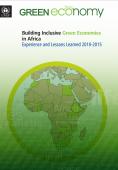
In its new report ‘A Greener Budget: Sustaining our Prosperity in a Changing World’, WWF-UK sets out a suite of practical policy recommendations that would help to shift the UK to a sustainable, resource efficient, low-carbon economy.
Drawing on the latest evidence, the report shows how these policy measures are win-wins for the environment and the economy - cutting public sector costs, generating hundreds of thousands of new jobs, creating new market opportunities, improving UK competitiveness, and insulating the economy and businesses from growing risks of resource scarcity and climate change.
Some of these measures will pay off even in the short-term – such as cutting energy and resource use. UK businesses could save £23billion in the space of one year through no-cost or low-cost resource efficiency measures, based on Defra’s own estimates. Other evidence suggests that, over longer time frames, improving the UK’s resource efficiency could generate half a million new jobs by 2030.
This report is the final delivery of the Energy Efficiency Financial Institution Group (EEFIG) summarizing its work and thinking over the 16 months between October 2013 and February 2015. During this time EEFIG has met nearly every month and addressed energy efficiency investments, their drivers and trends, for buildings, industry and SMEs in the European Union (EU). The reports contains recommendations on a range of actions that could help overcome the current challenges to obtaining long-term financing for energy efficiency. It focuses on the following questions to increase the flow of energy efficiency investments from a financial institution’s perspective:
1. What are the most imminent challenges that must be overcome?
2.Who would be the right party to address them?
3. What should the European Commission/EU do?
This study examines various low-carbon green growth (LCGG) initiatives that the South Korean government introduced to market Korea as a trendsetter in the global environmental arena. The country's domestic foundations for environmental innovation, however, reveals a dissonance between its international aspirations and the internal conditions that are needed to sustain the pursuit. This case of mixed environmental achievements by a rising middle-power state suggests the insufficiency of a state-led approach to environmental innovation and leadership.
A growing number of companies globally have started to develop and apply circular business models. These business models replace the traditional linear, “end-of-life” concept. Companies are now employing restoration rather than destruction and are shifting away from fossil fuels towards renewable energy. Manufacturers are stopping the use of toxic chemicals and aiming towards the elimination of waste through superior material, product and system design. Governments have good reasons to act as well: Besides strengthening the economy by saving hundreds of billions of euros per year on finite resources, the shift to a more circular economy not only stimulates innovation, it also offers the promise of new employment opportunities. Given the importance of government intervention in establishing sustainable national economies, the Dutch Sustainability Business Association has in this publication identified best practices by analysing government initiatives worldwide.
